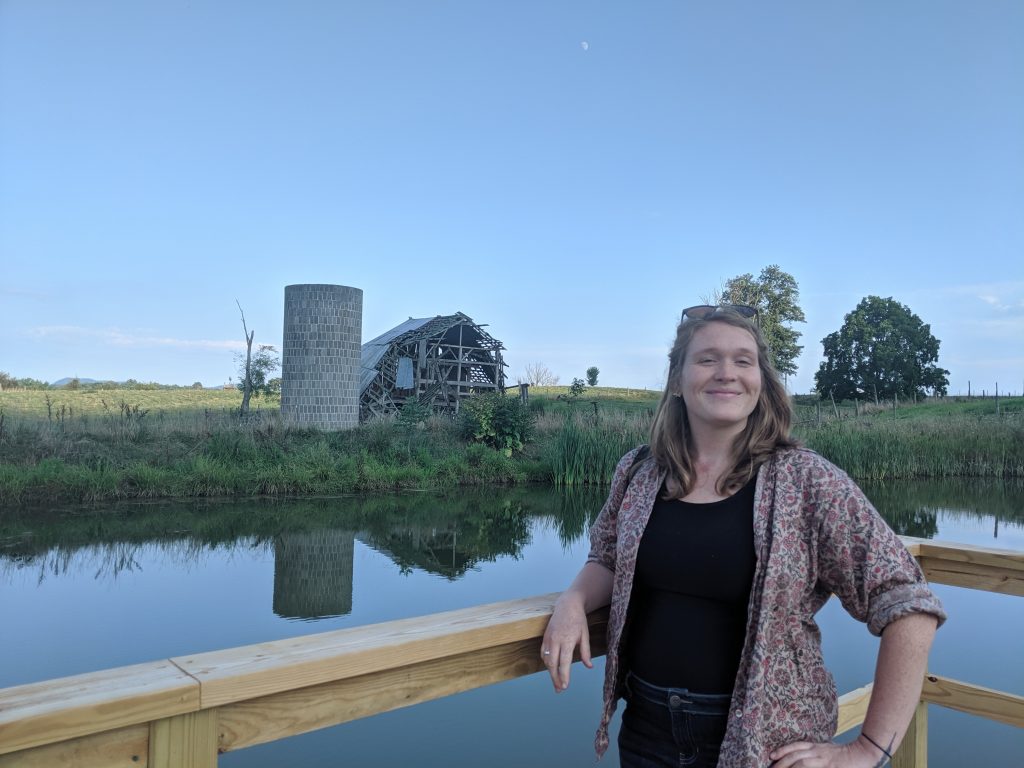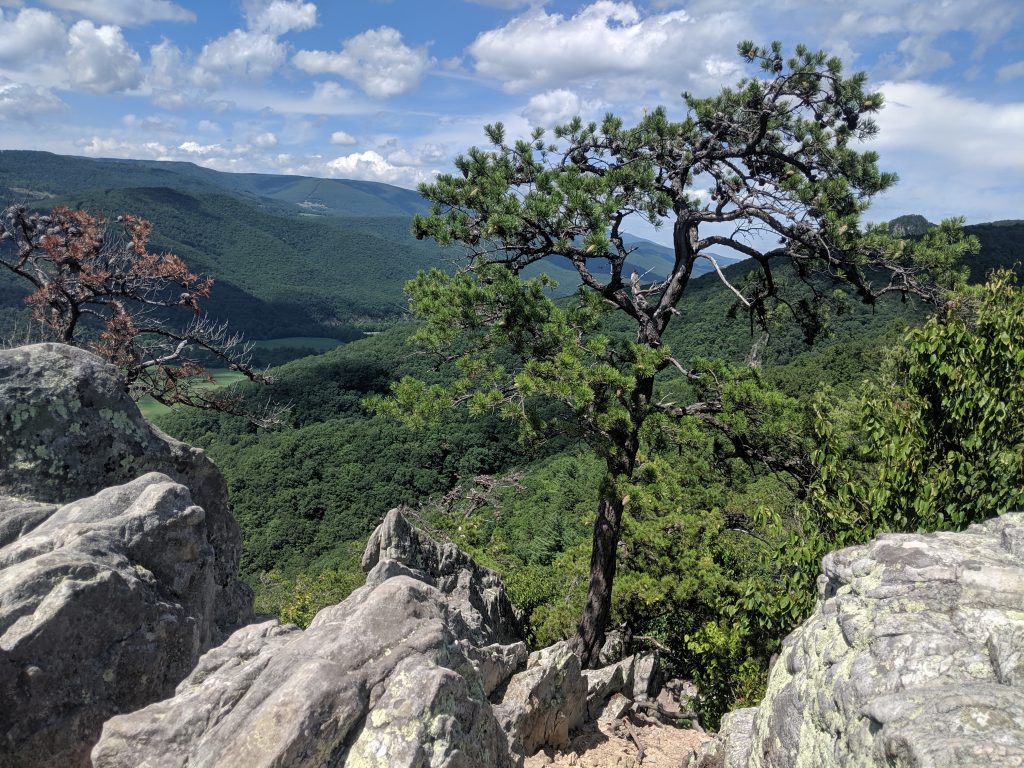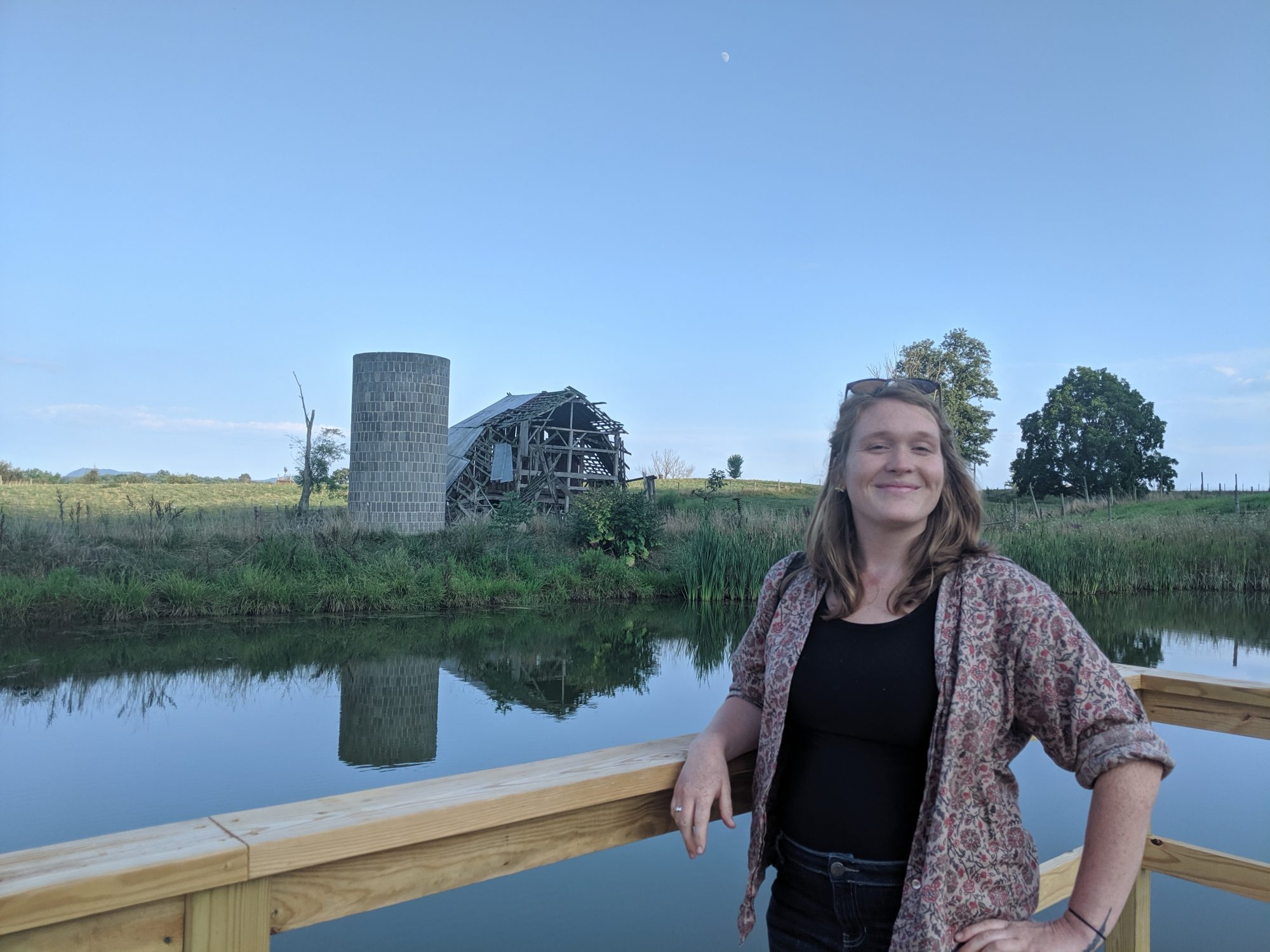
At a steady 20 mph, AmeriCorps volunteer Mollie Knighton drove along a gravel road just outside Elkins, West Virginia. Mollie works at the Fish and Wildlife Service in Elkins along with Abby Devlin, whom we have been following in her service journey.
After learning so much about Abby’s experience over the course of this year, I decided it was time to visit her. I planned my visit around this specific car ride. The purpose of the ride was to monitor the forest for bats. Instead of going into a cave and looking for bats, which requires specialized training, we used a speaker magnetized to the car to listen for them.
This acoustic bat survey was one in a series that were part of Abby’s responsibilities. Prior to our ride, she and Mollie completed three other surveys.
In addition to helping Abby with the acoustic bat surveys, Mollie coordinated the Elkins “Batweek” event. Batweek, as Mollie explains in the video, is “a nationally celebrated week” and drew a sizable crowd. The event was important because bat populations in West Virginia—and across the country—are struggling due to White-nose Syndrome (WNS). A white fungus that typically covers the bats’ noses (and wings) is how WNS gets its name. The fungus itself does not kill the bats, but it wakes them from hibernation. That causes the bats to deplete their fat reserves that are necessary to sustain them until spring.
There was no time to stop during the survey because we had to complete the 26-mile loop in one go. A five-minute pause was permitted, but only if absolutely necessary. Any break longer than that and the data we collected would be scrapped. The route lasted a little over two hours, which gave us plenty of time to talk about their experience with AmeriCorps.
Like Abby, Mollie studied environmental science in college. She was drawn to the AmeriCorps program in Elkins for the opportunity to get hands-on experience in the environmental field and experience something different from her northern Ohio hometown.
“West Virginia was definitely a breath of fresh air. I grew up on Lake Erie in a very flat region…so coming here was a totally different landscape. And the mountains just feel very comforting,” Mollie explained.

As we learned previously, Abby too came to West Virginia for a new and different experience. Whereas Mollie said she wouldn’t live permanently in West Virginia because she found accessibility—or lack thereof—frustrating, Abby wished she could stay. However, a move closer to family in Virginia takes precedence at the moment.
“I feel like it’s the perfect amount of people for me personally to develop a community and still have a lot of the conveniences,” she said of Elkins.
The common theme, or one we returned to during many of our conversations, was how much she liked Elkins and the specific AmeriCorps program she was a part of. In the video Abby says that besides the great cohort of volunteers she worked with, the Fish and Wildlife Service offered her so much in terms of professional development and boosting her personal confidence.
In our last check-in with Abby, we discussed some of the problems associated with volunteerism. Although many of those criticisms hold true, so do the positives. Ultimately, the work Abby did served an important use for her community. Whether it was the acoustic bat surveys, monitoring Japanese knotweed, or coordinating events with partner organizations, this work was necessary for preserving and protecting West Virginia’s natural habitats.
Abby and Mollie gave their time for little money, but they gained new experiences and insights that they will carry to their next stage of life. Abby—who will only be three hours away from Elkins when she moves to Virginia—already plans to visit and stay connected to the place she grew so fond of over the last year.
Annie Chester is a writer and co-founder of expatalachians. She writes on environment and culture in Appalachia and abroad. She was an English teacher on the Island of Corsica, France. Now, she’s an Appalachian Food Justice Fellow.
Subscribe to The Patch, our newsletter, to stay up-to-date with new expatalachians articles and news from around Appalachia.


